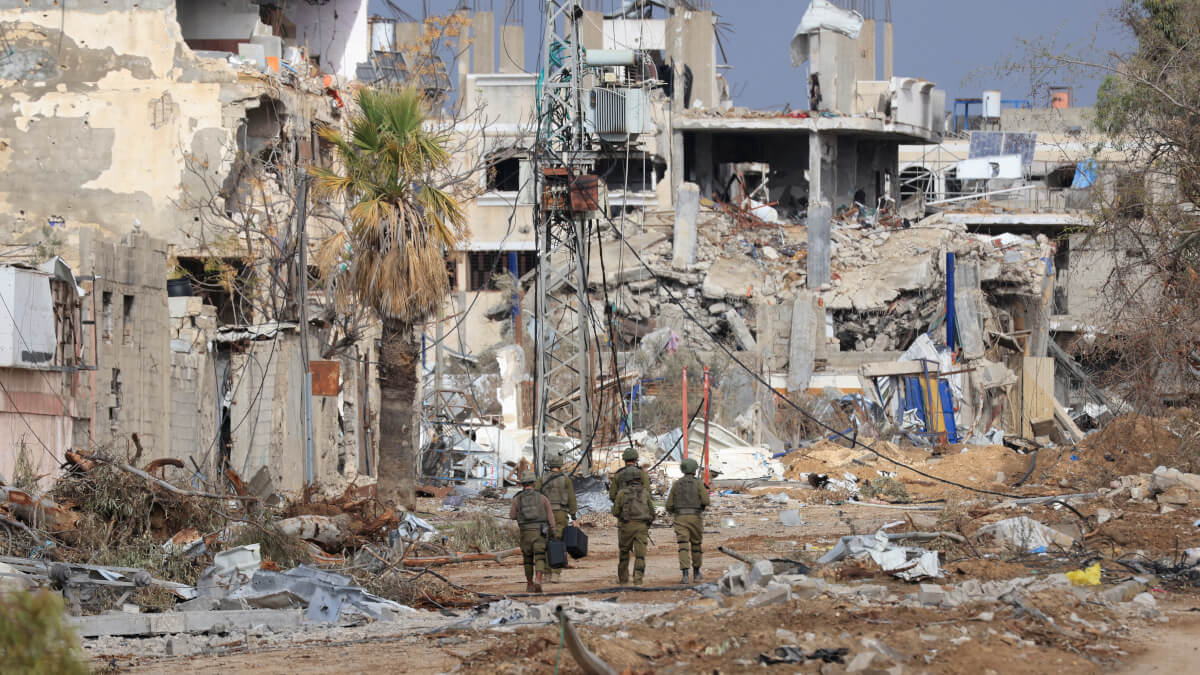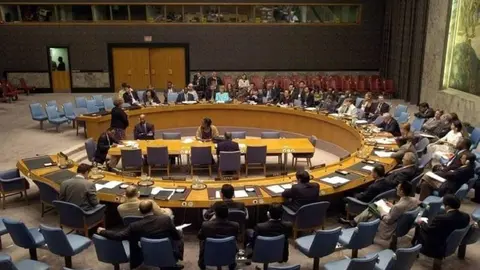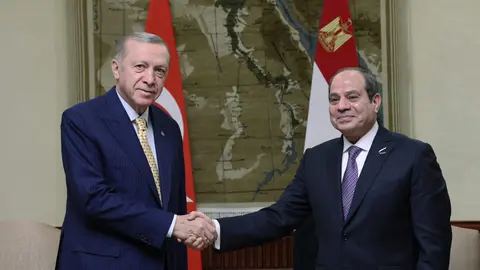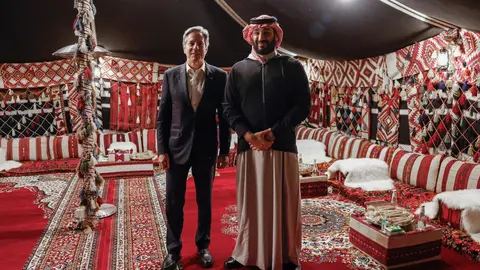Netanyahu does not rule out local officials administering Gaza after war

For the first time since the war between Israel and Hamas began, Israeli Prime Minister Benjamin Netanyahu has presented a plan for the Gaza Strip once the conflict ends. However, this document - presented last night to the War Cabinet for approval and released today by the Prime Minister's Office - lacks concrete details and is largely based on public statements made by Netanyahu in recent months.
- Security in Israeli hands and possible cooperation with Arab countries
- Closure and replacement of UNRWA
- Israel continues to reject a Palestinian state
- New truce talks
In the plan, Netanyahu does not rule out local officials administering Gaza once the war is over, as long as they have "administrative experience" and are not linked to "countries or entities that support terrorism".
Netanyahu also wants to implement a plan to carry out a 'deradicalisation' of all religious and educational institutions in the Gaza Strip. This progress will be carried out "to the extent possible" with the help of Arab countries that have experience in this area.
In contrast to previous statements, Netanyahu raises the possibility of Palestinian authorities playing a role in the management of Gaza, something the US has proposed on several occasions.
Security in Israeli hands and possible cooperation with Arab countries
While local officials are in charge of civil administration and law and order, Israel will retain control over security. In the medium term, the Israel Defence Forces will retain the freedom to operate in the Palestinian enclave "without time limit".
A "security zone" will also be established within the Gaza territory bordering Israel "as long as there is a security need". Moreover, Israel will control the Gaza-Egypt border - to the extent possible in cooperation with Cairo and with US assistance - to prevent smuggling from the Egyptian side of the border.

The document underlines that the reconstruction process will begin once the territory is demilitarised. Likewise, reconstruction plans will be implemented with funding and leadership from countries 'acceptable' to Israel.
Netanyahu appears to be referring to the possible involvement of Saudi Arabia and the United Arab Emirates in reconstruction and de-radicalisation efforts, something Washington also hopes to achieve. However, both countries have made it clear that they would not participate in any post-war plan if it does not include the foundations for a Palestinian state.
Closure and replacement of UNRWA
Another point highlighted in the plan is the closure and replacement of UNRWA, the UN agency for Palestinian refugees, because of its links to Hamas and the involvement of some of its members in the 7 October massacres.
"Israel will work to stop UNRWA's activities in the Gaza Strip and replace them with responsible international aid agencies," the document states.
In this regard, in the short term, a senior Israeli official told Times of Israel that Jerusalem opposes the immediate dissolution of UNRWA, as the organisation is currently the main aid distribution association in the territory, and that its closure could lead to a humanitarian catastrophe that could force Israel to cease its fight against Hamas.
Just how many more @UNRWA employees need to also be Hamas operatives before UNRWA is shut down? pic.twitter.com/6Um7zXCb6s
— Aviva Klompas (@AvivaKlompas) February 22, 2024
Israel continues to reject a Palestinian state
However, this plan would not be implemented until the goals set by Israel at the beginning of the war are achieved: the destruction of Hamas and Islamic Jihad's military capabilities and governmental infrastructure, the release of the hostages kidnapped on 7 October and the elimination of any long-term threat.
Netanyahu's plan concludes by reiterating Israel's rejection of any international diktat on a permanent settlement with the Palestinians, which should only be reached through direct negotiations between the parties, without preconditions. It also stresses that Jerusalem will continue to oppose unilateral recognition of a Palestinian state, as it considers it a "reward for terror".
New truce talks
The presentation of this plan coincides with Israel's decision to send a delegation to Paris for talks on a hostage deal and a truce in the war. Qatar, Egypt and the US are mediating a possible deal to free more than 130 hostages believed to be held by Hamas on 7 October.











